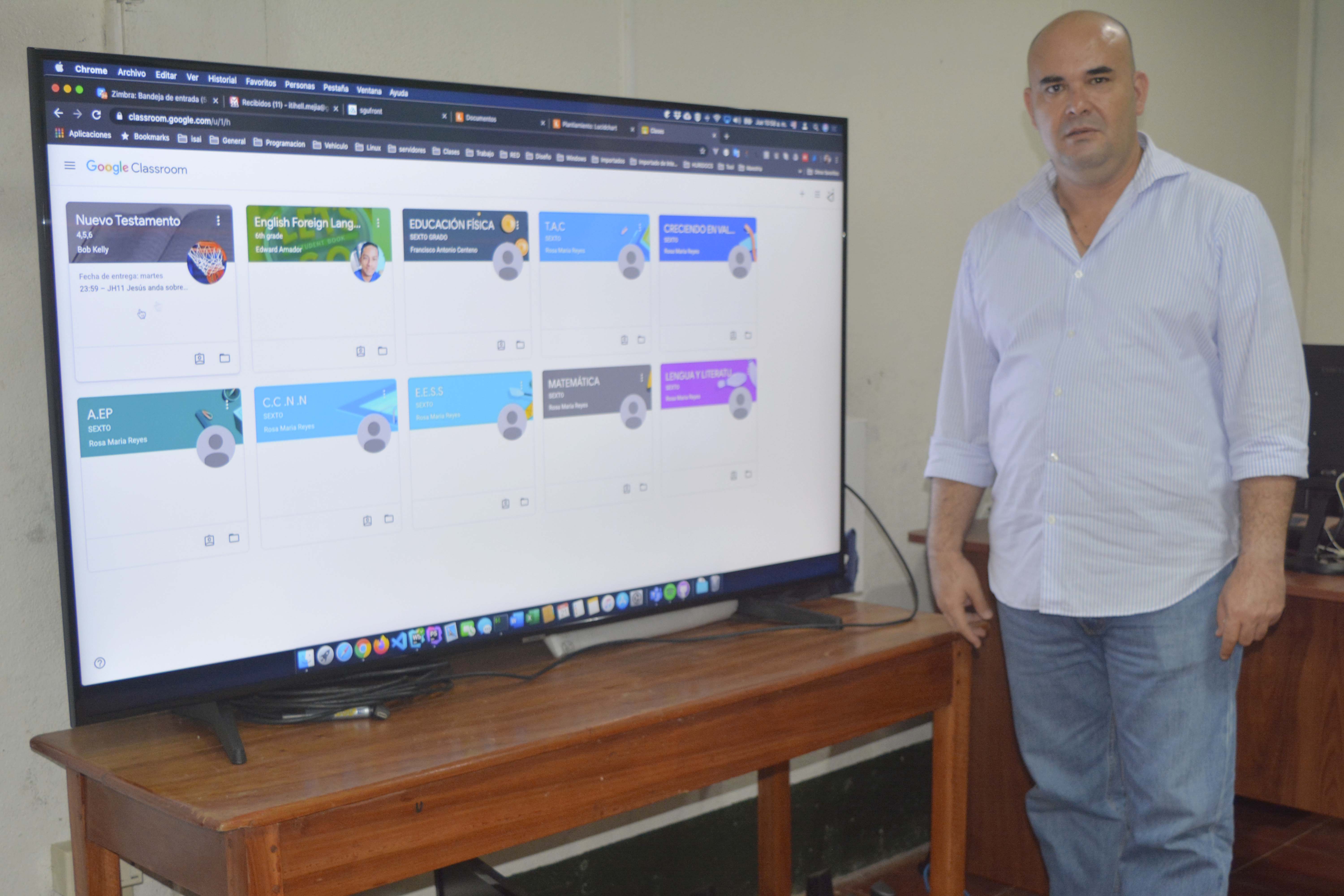
Master Marlon Peralta, Director of the Information Technology and Institutional Communication System (SITICI).
Based on its community commitment, URACCAN campus New Guinea has trained teachers from primary and secondary schools in this municipality in the use of educational technologies, so that, in the face of the COVID-19 crisis, they can attend virtually to their students.
Teachers from Schools in New Guinea have been trained in the use of technology tools, educational platforms, virtual object creation and online assessment tools.
This activity is developed by master Marlon Peralta Mendoza, director of the Information Technology and Institutional Communication System (SITICI-URACCAN), as part of the accompaniment that this house of intercultural studies has been carrying out in the use of new educational and communication technologies to strengthen Regional Autonomy.
For the Peralta teacher, "good use of technology is an advantage, because the teacher from home may be interacting with his student as if it were face-to-face; dictating exercises, placing videos as support material, among other actions that attract the student's attention."
In this context, the teacher Maura Reyes Hernández, deputy director of the Manto de Gracia school, expressed gratitude to the authorities of this institution for "making available for training and accompaniment of primary and secondary schools, human resources, specialists in the management of educational technology, with which URACCAN has".
Reyes also says that training is "for strengthening online education, at this time of crisis, what our country and the other countries in which it has affected the COVID-19 pandemic are happening."
However, in this same sense, the director of SITICI-URACCAN points out as a disadvantage the fact that "not everyone has the same access to technology, or to a computer in each house; there are parents who don't have that chance," he said.
"URACCAN is committed to supporting these processes and has the staff and technological means to do so," Peralta Mendoza continues, referring to the equipment and navigational capacity, as well as the human talents trained at this First Intercultural Community University in Latin America.
That is why the use of Information and Communication Technologies (ICTs) in educational practice becomes important for the development of the learning teaching process, so it is imperative that teachers, at all levels, are trained for this increasingly technological society, maintaining a positive attitude to any change in the educational context.
- Log in to post comments
- 14 views
